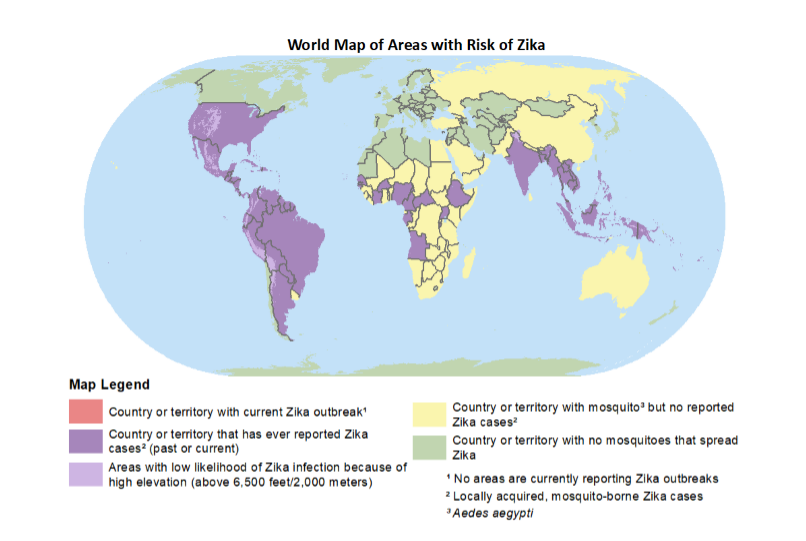HIV drug stops Zika infection, strategy could halt infections caused by related viruses
A look at Zika virus
Zika virus was previously only a problem in parts of Africa and Asia but is now found throughout the Americas and multiple other regions of the world. The virus is transmitted to humans by mosquitoes and damages the brain and nervous system by entering neural tissues. In severe cases, it can cause an autoimmune condition called Guillain-Barré syndrome, which can quickly spread through your nervous system and paralyze your entire body. Infants born to mothers infected during pregnancy may experience delays in neurological development and may be affected by microcephaly (abnormal smallness of the head). To learn more about the mosquito and the havoc it has reeked on man kind throughout our history, click [Here]

HIV treatment drug blocks Zika virus
Researchers at the Lewis Katz School of Medicine at Temple University (LKSOM) show that a drug used to treat HIV can possibly be repurposed to treat other viral diseases—potentially fast-forwarding research into the distant future by bypassing the decades needed to develop such a drug from scratch.
In a new study published in the journal Molecular Therapy, the Temple researchers report that an HIV treatment drug called rilpivirine, stops Zika virus by targeting enzymes that both HIV and Zika virus depend on for their replication. These enzymes occur in other viruses closely related to Zika, including the viruses that cause dengue, yellow fever, West Nile fever, and hepatitis C.
“HIV and Zika virus are distinct types of RNA viruses,” “By discovering that rilpivirine blocks Zika virus replication by binding to an RNA polymerase enzyme common to a family of RNA viruses, we’ve opened the way to potentially being able to treat multiple RNA virus infections using the same strategy.”
Kamel Khalili, Ph.D.
To replicate inside cells, Zika virus requires an enzyme called non-structural protein 5 RNA-dependent RNA polymerase (NS5 RdRp). In the study, the team showed that rilpivirine suppresses Zika virus infection in cells by binding specifically to the NS5 domain thus blocking viral replication.
Experiment cures Zika in mice
Dr. Gordon’s team carried out experiments in mice, in which the animals were infected with Zika virus through their footpads, similar to the way a person becomes infected through a mosquito bite. Mice that become infected with Zika virus normally become very sick within about a week and eventually die. “We found, however, that when treated with rilpivirine, the animals survived,” Dr. Gordon said. “Our conclusion is that rilpivirine disrupted the virus’s usual course of infection.”
“We now have a clear path forward,” “We have a starting point from which we can find ways to make these drugs even more potent and more effective against flaviviruses.”
Kamel Khalili, Ph.D.
The researchers plan to improve the effectiveness of methods used to fight Zika and other related viruses. Their research could prevent thousands of deaths each year from diseases like dengue and Ebola. We at Kite are fighting these diseases world-wide with our malaria free world campaign by partnering with you and sending our products to people in affected countries.
To stay updated on stories and posts like this one, click [Here], and remember to always share Links and articles with those you know to help make sure that we all stay informed and protected.
Source:
Temple University


